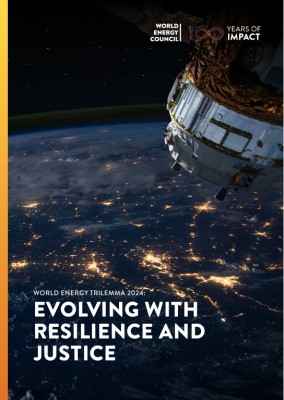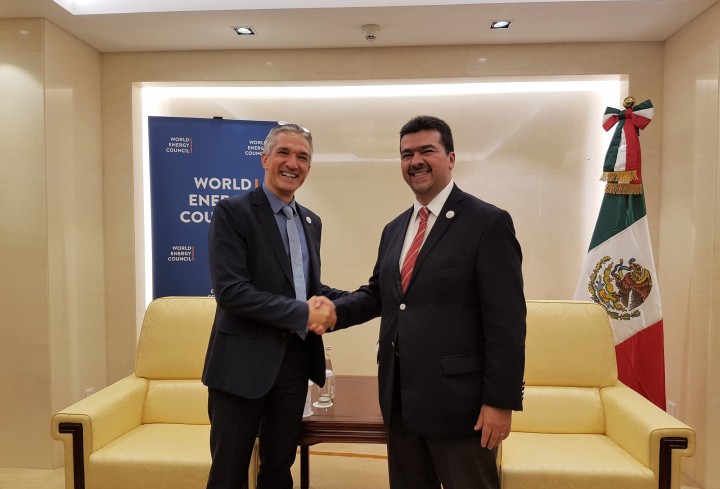Hector Cotes holds a bachelor's degree in Industrial Engineering and two master’s degrees: one from INCAE Business School and another from Nova SouthEastern University, Florida.
He is currently the General Manager of Electron Investment, S.A (EISA), a renewable energy generation company of 86MW installed capacity. Previously he served as CFO of Grupo Eleta. His experience includes the VP of Operations of Profuturo (administrator of private pension funds of the Banco General Group) and several management positions in the Panama Canal (Capital Program Coordinator, Cost Manager, Risk Manager, among others).
Mr. Cotes is Immediate Past President (2017-2018) of the Panamanian Association of Business Executives (APEDE), where he has been active since 2004 and member of the Board of Directors on several occasions, serving as Vice President and Secretary of Finance. He is currently Vice President of the National Committee of INCAE Business School for Panama.
In October 2018 and again in 2019 he was recognized as one of the top 75 executive leaders of Panama with the best professional reputation by Summa Magazine and MERCO.
Energy in Panama
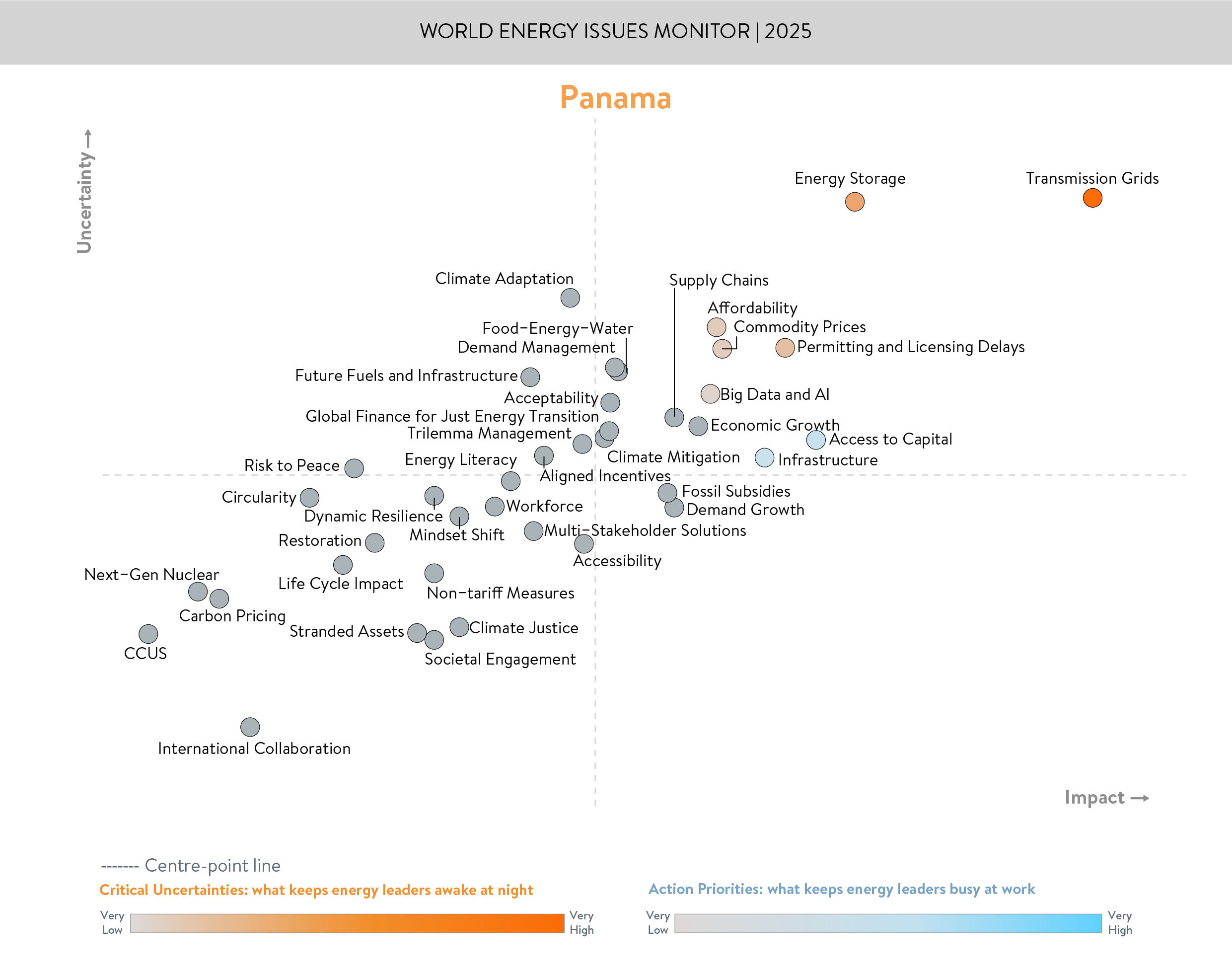
ENERGY TRANSITIONS IN MOTION
Panama is a country currently experiencing a paradoxical reality. On one hand, its energy sector has maintained a remarkable commitment towards achieving a just and inclusive energy transition. On the other hand, the broader political environment remains unstable, raising serious concerns among both domestic and international investors. This tension between sectoral progress and political uncertainty encapsulates the complex challenges that Panama has to navigate to ensure sustainable development and economic resilience.
ADDRESSING CRITICAL UNCERTAINTIES TO BALANCE THE WORLD ENERGY TRILEMMA
Trust in Panama's electricity market is reflected in the fact that, in 2024, 73% of the electricity was generated from renewable energy sources (solar, wind and conventional hydro). Furthermore, the additional 670 MW of natural gas installed capacity to Panama’s National Interconnected Grid underscores Panama’s commitment not only to a clean and diversified electricity matrix, but also to ensure the reliability of its power system. However, similar to last year, in this edition of the World Energy Issues Monitor, the transmission grid emerges as the primary critical uncertainty. With the escalating installed generation capacity, there is a heightened concern regarding the necessary public investment in transmission capacity and the establishment of resilient, modern networks. This is essential to keep up with the pace of investment and ultimately accomplish decarbonization goals.
Prioritizing the integration of energy storage into the Panamanian regulatory framework is recognized nowadays as a key area. Panamanian stakeholders acknowledge the role of storage technologies as a flexible component within increasingly decentralized and variable power systems. However, as policies and regulations related to storage continue to evolve, experiences such as the country’s first battery storage tender launched in 2024 - which was initially postponed and later cancelled due to lack of regulatory clarity - underscore the need for further regulatory development to support innovation in this area.
One of the main challenges facing Panama’s energy development is the prolonged delays in obtaining permits and licenses. Despite the attractive legal framework with tax incentives and clear regulations, the approval process for renewables projects remains slow. These delays often stem from bureaucratic bottlenecks, overlapping jurisdiction between agencies and local governments, lack of understanding from agencies of the complex investment process for projects and limited administrative capacity. As a result, promising projects encounter long lead times that discourage investors and stall deployments, diminishing the momentum for clean energy expansion.
FROM BLIND SPOTS TO BRIGHT SPOTS
While Panama is facing specific social, political and economic challenges, limited access to capital has become an action priority. Despite Panama’s relatively stable economic performance, tighter global financial conditions and increased regional risk perception have constrained financing opportunities. In this context, regional diplomatic cooperation can play a crucial role in restoring investor confidence, fostering strategic partnerships, and promoting common frameworks that improve access to capital. For Panama, strengthening this kind of collaboration may be an effective path to preserving its credit profile and advancing both a sustainable economic recovery and the country’s ongoing energy transition.
Big data and AI are gradually gaining traction among Panamanian stakeholders, who recognize their significant potential. However, there is a broad consensus that effective implementation will require systemic improvements, particularly in developing a skilled workforce, strengthening data infrastructure and fostering cross-sector collaboration.
Acknowledgements
Panama Member Committee
Downloads
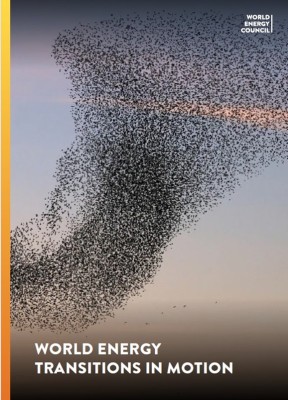
Panama Energy Issues Monitor 2025
Download PDF
World Energy Issues Monitor 2025
Download PDF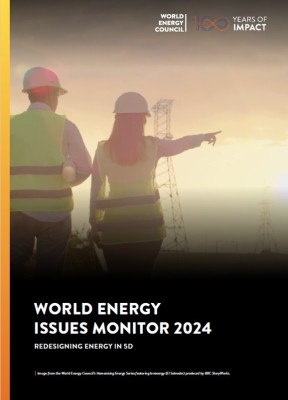
Panama Energy Issues Monitor 2024
Download PDF
World Energy Issues Monitor 2024
Download PDF